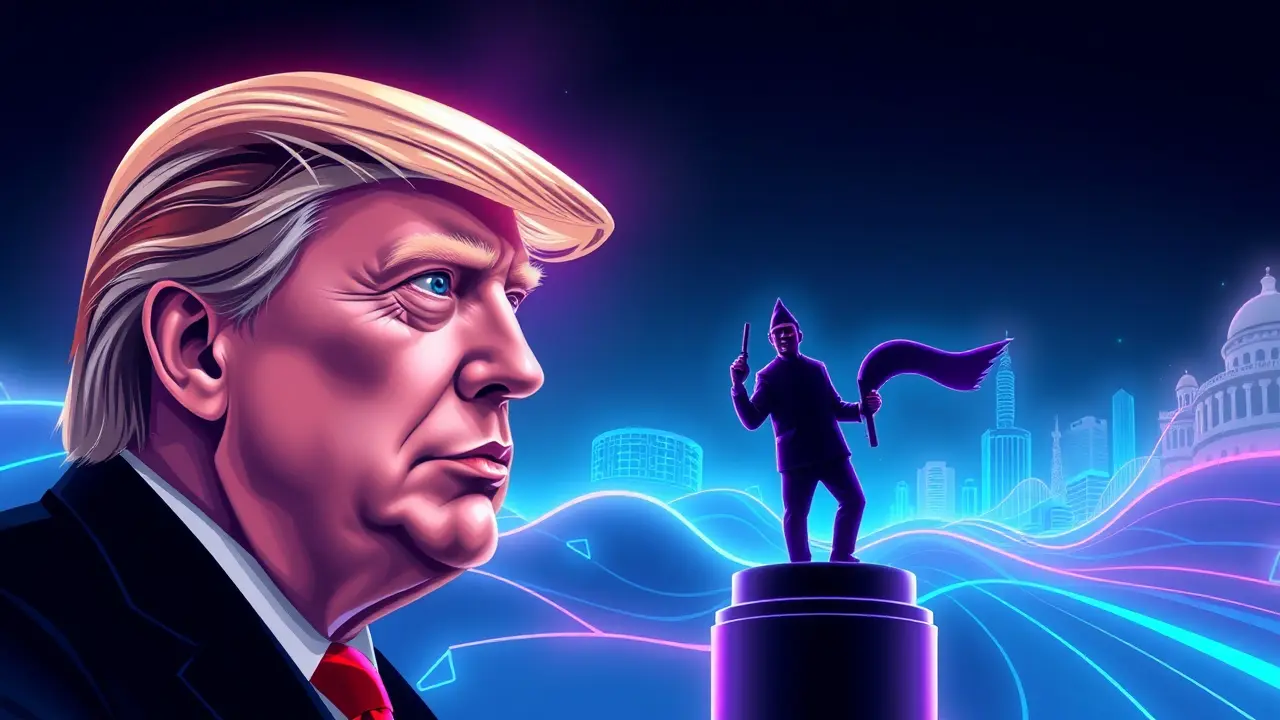- News
- governments-cabinets
- Political Philosopher Michael Sandel Analyzes Trump's Rise and US-China Rivalry.

Politicsgovernments & cabinetsLeadership Transitions
Political Philosopher Michael Sandel Analyzes Trump's Rise and US-China Rivalry.
RO
Robert Hayes
12 hours ago7 min read
The ascent of Donald Trump and the deepening Sino-American rivalry represent not merely political phenomena but the culmination of profound philosophical shifts within the global order, a thesis expertly articulated by political philosopher Michael Sandel, the Anne T. and Robert M.Bass Professor of Government at Harvard University, whose seminal course on justice has captivated a global audience of tens of millions and whose recent accolade, the 2025 Berggruen Prize for Philosophy and Culture—often regarded as philosophy's equivalent to the Nobel—cements his authority to dissect these tectonic movements. Sandel posits that Trump's rise was not an aberration but a predictable backlash against decades of meritocratic hubris, a system that, while lauding winners, has systematically marginalized and humiliated those left behind by globalization and technological change, fostering a deep-seated resentment that populist leaders expertly weaponize; this analysis echoes historical precedents where economic dislocation, from the Weimar Republic to the deindustrialization of the 1980s, has consistently fueled nationalist and anti-establishment fervor.The American crisis of identity, therefore, is intrinsically linked to its struggle with the very ideals of meritocracy it purports to champion, creating a vacuum of civic trust that authoritarian figures are poised to fill. Parallel to this internal unraveling is the external contest with China, a rivalry Sandel frames not just in geopolitical or economic terms but as a clash of governing philosophies: the raw, often chaotic, ethos of populist democracy against the state-engineered, technocratic authoritarianism of the Chinese Communist Party.This is a conflict decades in the making, tracing back to the post-Cold War triumphalism of the West and China's calculated, long-game strategy of economic ascent, a dynamic reminiscent of the Thucydidean tensions between a rising Athens and a established Sparta, fraught with the peril of miscalculation. The implications are staggering, extending beyond trade tariffs and naval maneuvers into the realms of technological supremacy in AI and biotechnology, the structuring of global supply chains, and the very future of digital governance and human rights.Expert commentary from foreign policy analysts suggests that the current trajectory, absent a recalibration towards a politics of the common good as Sandel advocates, risks a new Cold War, one potentially more destabilizing than its predecessor due to the deeply intertwined economies and the absence of clear ideological boundaries. The consequences for middle powers and the global south are profound, forcing nations into a precarious balancing act between two competing centers of gravity, while the domestic political fallout in the United States continues to hamper its capacity for a coherent, long-term strategic response, leaving the international system in a state of volatile flux where the old rules no longer apply and the new ones are yet to be written.
#featured
#Michael Sandel
#Donald Trump
#meritocracy
#US-China rivalry
#political philosophy
#Berggruen Prize
Stay Informed. Act Smarter.
Get weekly highlights, major headlines, and expert insights — then put your knowledge to work in our live prediction markets.
© 2025 Outpoll Service LTD. All rights reserved.